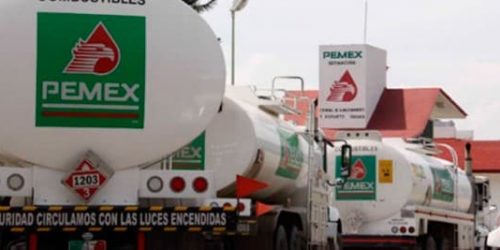Mexico’s state-owned oil firm Pemex, which has US$105 billion in debt, is planning a debt swap for a total of US$22.4 billion long-term bonds, according to a filing to the SEC reported by Reuters.
The Mexican oil firm has been amassing enormous debt for years, and in October last year, it carried out a massive operation to refinance around US$20 billion of its debt via new bond offerings and debt swaps.
Mexico’s leftist populist President Andrés Manuel López Obrador planned to make Pemex the pillar of a turnaround for the country’s declining oil production, but the oil price crash further deteriorated the finances and the debt of the Mexican oil company.
Pemex is asking some of its contractors if they would agree to be paid for their services next year, people familiar with the payment situation at the company told Bloomberg earlier this week.
Pemex is no longer issuing invoice numbers in some cases, and three contractors have been asked if they could wait until next year to receive a total of US$115 million for the work they are doing now, according to Bloomberg’s sources.
In April, reports emerged that Pemex hadn’t paid hundreds of workers for months and was already months behind in payments to contractor firms.
The company was downgraded in April by both Fitch and Moody’s because of its excessive debt and inability to cope well with the plunging oil prices.
Fitch based its downgrade on “the company’s limited flexibility to navigate the downturn in the oil and gas industry given its elevated tax burden, high leverage, rising per-barrel lifting costs and high investment needs to maintain production and replenish reserves.”
Moody’s, for its part, said in the downgrade rationale that “PEMEX’s cash flow generation and credit metrics will remain weak in the foreseeable future as the company grapples with low oil prices, high debt maturities, and underinvestment in exploration and production in favor of an expansion of its refining business, which has generated losses for several years.”







